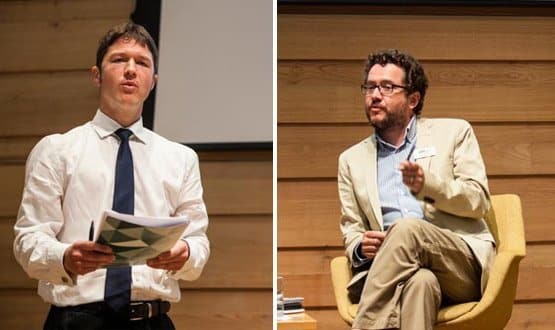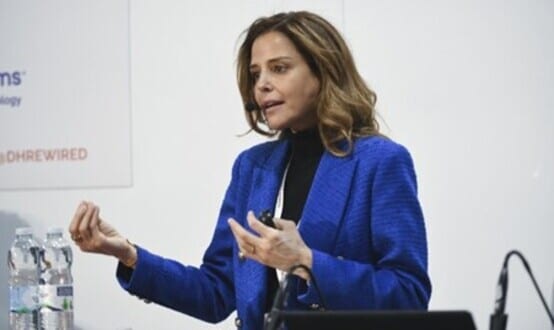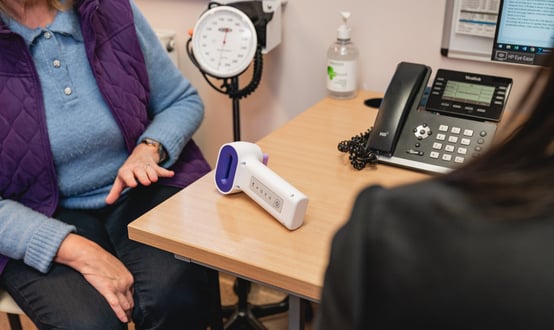School’s in for summer
- 30 July 2014

Electronic patient records, integration, and the “three Ps” were among the hot topics of discussion at the first Health CIO Network summer school last week.
As the sun blazed down on Oxford, some 40 people turned up at Wolfson College for the event, where they had the opportunity to hear from – and ask questions of – a range of high-profile figures.
They included Health and Social Care Information Centre chief executive Andy Williams, NHS England’s medical director Sir Bruce Keogh, and NHS England’s director of strategic systems and technology, Beverley Bryant.
The summer school also included a site visit to John Radcliffe Hospital, part of the Oxford University Hospitals NHS Trust, where trust representatives spoke about the benefits and challenges of their move to an electronic patient record system.
Many trusts, similar issues
The Health CIO Network was launched last November, as a companion to the successful CCIO Leaders Network that grew out of EHI’s campaign to get chief clinical information officers appointed across the NHS.
The newer network is free and open to all CIOs and those holding similar positions. It also operates as a network of networks, bringing together more established groups, and helping them to share ideas.
EHI editor Jon Hoeksma says the purpose of the summer school was to help attendees “break the ice” and feel comfortable about discussing the shared challenges they face.
“It’s about putting CIOs into an environment where they can get to know each other better, share their experiences and solve problems; because we’ve found time and time again that people are dealing with similar issues in different parts of the country.”
Daniel Ray, the director of informatics at University Hospitals Birmingham NHS Foundation Trust, and chair of the network’s advisory group, says he decided to get involved “drive the network forward” and help CIOs to get a better understanding of how they can learn from each other.
“Everyone’s in different places when it comes to the development of their EPRs and their use of data, but there are areas in which we’ve all got our strengths, and if we can share those with other organisations, we [may help overcome] what is an area of weakness for them.”
What’s said at summer school stays at summer school
Hoeksma says the event was held under the Chatham House Rules so that attendees could have free and frank discussions about their concerns and priorities.
“What we’ve heard back is that people find it incredibly helpful to have time out of their day job in a protected environment,” he says. “They can step back from the day-to-day and talk about how they’re dealing with very similar issues.”
Ray identifies the “three Ps” of policy, process and procurement as some of those similar issues, while Hoeksma says the implementation of EPRs came up frequently.
“EPRs are still top of the list for almost everyone: either they’re in the midst of procurement, they’re in the process of implementing, or they’re trying to get to the next stage of realising benefits,” he says.
Integration was another hot topic, and there was particular interest in identification services and whether they should be controlled centrally or delivered at a local level.
“There were discussions about how you share information, what is the information governance around that – there was a lot of discussion around portals and how people could learn from them,” Hoeksma says.
“In London, there are six different patient portals, and for a patient going between one trust and another that seems like a lot. Should they really have to navigate six different portals?”
Anyone for boot camp?
Both Ray and Hoeksma say that one highlight from the summer school was the presentation from Sir Bruce, who spoke about information’s critical role in the future of healthcare and the “creative destruction” of medicine.
Hoeksma also praises Williams and Bryant for addressing CIOs directly – and taking tough questions from their audience.
“What the summer school provides is an opportunity for them to talk directly to informatics leaders in a way that no other forum can offer.
“The fact that they were there, willing to stand up on a platform, to field questions and brickbats, and to indulge in some candid conversations is a big thing to take note of.”
Hoeksma says the next major event being planned for the network is the second annual Health CIO Network conference. This will take place alongside EHI Live 2014 in November.
The network is also working with regional groups to put together a programme of joint events ahead of the next summer school in summer 2015.
EHI is also working on the concept of a joint CIO-CCIO “boot camp” focussed on skills acquisition and problem solving. Although the Health CIO Network was set up to support CIOs, members have already expressed a strong desire to take part in events at which they can work alongside CCIOs.
Other initiatives include the development of community tools to enable more information sharing and collaboration between members, while a monthly best practice webinar has started well and could be increased in frequency.
Hoeksma says the network is also producing an NHS CIO handbook to explore the challenges of the CIO role. There are plans to publish selected chapters this autumn, before releasing them as an e-book.
“The challenge is to get the focus on the strategic value of CIOs in the NHS, because they can be leaders for their clinical colleagues,” he concludes.
Keeping connections going
For Ray, the most significant task is to build on the success of the summer school and to make sure that the network maintains its relevance to CIOs as they press ahead with their daily jobs.
“The thing we need to do is keep up momentum and build on the relationships that we’ve started – I’ve already had loads of emails coming through with people talking about what we discussed. If we can keep the connections going, we will help people to see the value in the network.”




